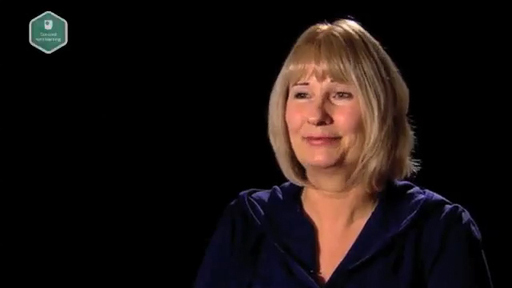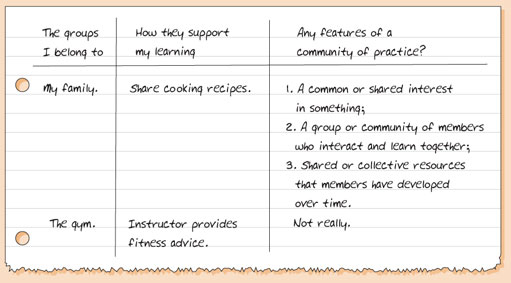3.3 Your learning communities
When you are learning new skills with others – including studying formal courses – you could be said to be part of a learning community. In this video clip one student, Karen, describes the nature of her learning community.

Transcript
My husband used to proofread because sometimes you get too close to things and you can’t see the wood for the trees. He was very good at that. My son bought me a memory stick. I'd never used one before he showed me how to use it. My work colleagues were very supportive throughout. If ever I came back to the office when I was on placement, they would always be very supportive, ‘You can do this. Of course you can.’ The people I was studying with – they were a lifeline. I knew that I could ring them up and ask them for help, and that they would help me. And exactly the same applied to me, I knew I could contact my lecturer, and he was only too happy to discuss any problems I had.
Does anything surprise you about the people Karen included in her learning community? She included all those who supported her, enabling her to study and be confident that she could do it, as well as her tutor and fellow students. They were all essential elements for her to succeed with her learning.
The next activity is a good opportunity to reflect on how the people in your own life influence your learning and studying.
By the way, in doing this, you are also evaluating the relevance and usefulness of communities of practice as a theory; that is, judging how accurate and useful it is. The key features of a community of practice provide a framework that you can use to analyse aspects of your own life.
Activity 3 Are there communities of practice in your life?
- Firstly, remind yourself of the key features of a community of practice. Then create a table such as that shown in Figure 4.
- In the first column, list up to six ‘groups’ to which you belong. (Your family or workplace might be one of these, as well as more obvious groups or societies.)
- In the second column, comment on how the people in these groups support your learning. (It can be everyday learning, academic learning, workplace learning …any type of learning.)
- Finally, in the third column, make some notes about whether the groups seem to have any of the three features of a community of practice.
Discussion
Well done for having a go at applying a theoretical framework to your own life! How did you get on? Did you find many communities of practice? Don’t worry if you are not sure – it isn’t always clear cut. The main thing here is that you start thinking this way.
This activity might also have reminded you of the difference between learning alone and social learning that you looked at earlier in the course. It highlights the importance of other people around us when we learn, and the different roles they play in our lives.

